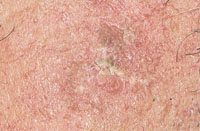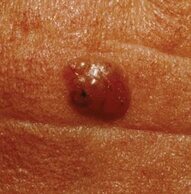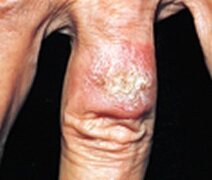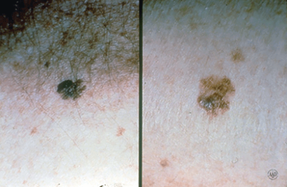Full Body Skin Exams:

Understanding Skin Cancer:
Skin cancer is the most prevalent of all types of cancers. Fair-skinned individuals who sunburn easily are at a particularly high-risk for developing skin cancer. Other important risk factors include use of tanning devices, family history, scarring from diseases or burns, and occupational exposure to compounds such as coal, tar, and arsenic.
Actinic Keratosis (AK)
Actinic keratosis is considered the earliest stage in the development of certain skin cancers. They are small, scaly spots most commonly found on the face, ears, neck, forearms, the scalp, and backs of the hands of individuals who have had significant sun exposure. AKs are typically treated by cryosurgery, electrodessication, curettage, or other dermatological surgical procedures. Some AKs may progress to advanced stages that require more extensive treatment. Proper use of sunscreens can help prevent AKs even after extensive sun damage has already occurred.
Skin cancer is the most prevalent of all types of cancers. Fair-skinned individuals who sunburn easily are at a particularly high-risk for developing skin cancer. Other important risk factors include use of tanning devices, family history, scarring from diseases or burns, and occupational exposure to compounds such as coal, tar, and arsenic.
Actinic Keratosis (AK)
Actinic keratosis is considered the earliest stage in the development of certain skin cancers. They are small, scaly spots most commonly found on the face, ears, neck, forearms, the scalp, and backs of the hands of individuals who have had significant sun exposure. AKs are typically treated by cryosurgery, electrodessication, curettage, or other dermatological surgical procedures. Some AKs may progress to advanced stages that require more extensive treatment. Proper use of sunscreens can help prevent AKs even after extensive sun damage has already occurred.




